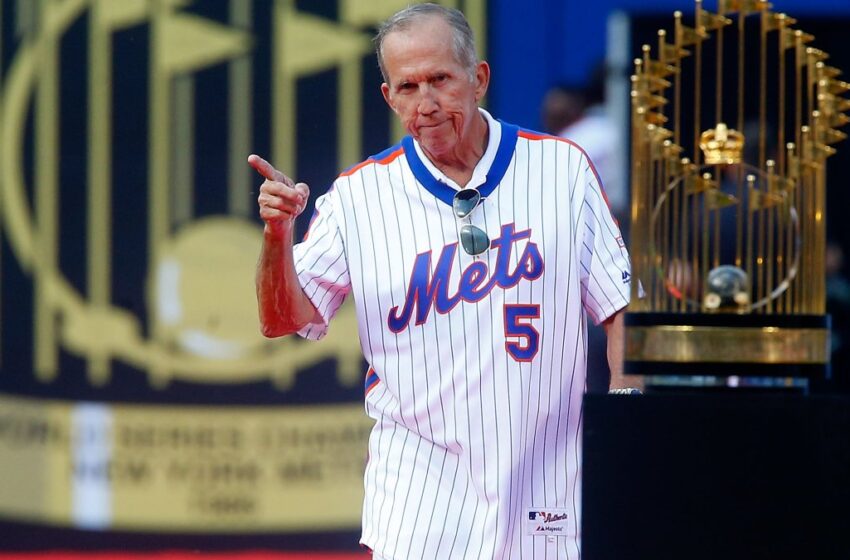Davey Johnson dies at 82: What to know about the Baseball legend

Mets’ World Series manager Davey Johnson dies at 82. Image Credit: Jim McIsaac/Getty Images
Davey Johnson, who died at age 82 in Sarasota, Florida, leaves behind one of the most distinguished resumes in baseball. Before he became a legendary manager, Johnson first made his mark on the field as a player. He debuted with the Baltimore Orioles in 1965 and played a key role in their success during the late 1960s and early 1970s. Known as one of the best defensive second basemen of his era, Johnson was a four-time All-Star and three-time Gold Glove winner.
Davey Johnson also contributed offensively, hitting 43 home runs with the Atlanta Braves in 1973, a record for second basemen at the time. His career included stints with the Philadelphia Phillies and Chicago Cubs before retiring as a player in 1978. His leadership qualities, combined with his deep understanding of the game, made his transition to managing almost inevitable. Johnson’s playing career not only brought him championships but also prepared him for the dugout, where he would make his most lasting impact.
Davey Johnson Historic Success as a Manager
As manager of the New York Mets, Davey Johnson delivered one of the franchise’s most unforgettable triumphs: the 1986 World Series. That Mets team, defined by its swagger and talent, beat the Boston Red Sox in a dramatic seven-game series that remains a classic in baseball history. Johnson’s calm yet commanding presence was credited with uniting a clubhouse full of strong personalities, guiding the Mets to a championship and cementing his place in MLB lore.
His managerial success extended across five teams: the Mets, Reds, Orioles, Dodgers, and Nationals. He finished with a career record of 1,372 wins and a .562 winning percentage, one of the highest among managers with more than 1,000 games. Johnson was twice named Manager of the Year, including with the Nationals in 2012 when he led the team to its first-ever division title. His consistency and adaptability allowed him to succeed across different markets and eras, solidifying his reputation as a winner everywhere he went.
READ ALSO
Giorgio Armani dies at 91: What to know about iconic Italian fashion designer
Kelsey Bateman dies at 39: What to know about the Rock of Love star
A Pioneer in Baseball Analytics
Long before the analytics revolution swept baseball, Davey Johnson was already using numbers to shape his strategies. Armed with a degree in mathematics, Johnson wrote computer programs in the 1970s to evaluate lineups and player performance. While his methods were ahead of their time, they laid the groundwork for the data-driven approach that has since become standard in Major League Baseball. He was one of the rare managers to combine old-school instincts with new-school analysis.
By embracing statistics, Johnson challenged tradition and helped usher in a new way of thinking about baseball strategy. From bullpen management to batting order optimization, his methods influenced a generation of front offices and managers who followed. Today, the widespread use of sabermetrics owes much to innovators like Johnson, whose pioneering work bridged the gap between numbers and the human element of the game. His legacy as an early advocate of analytics remains one of his most important contributions to the sport.
Tributes and Lasting Legacy
In the wake of his death, tributes have poured in from across the baseball world. Former players praised Johnson not only as a manager but as a mentor who inspired confidence in his teams. Mets legend Darryl Strawberry called him “a remarkable leader,” while former Nationals star Ryan Zimmerman remembered him as “a baseball genius and a better person.” The organizations he managed released statements honoring his impact on their franchises and the sport as a whole.
Johnson’s influence goes beyond wins and championships. He was a figure who combined vision, innovation, and humanity in equal measure. Players under his guidance often said they felt empowered, trusted, and motivated to perform at their best. His unique blend of leadership and forward-thinking strategy left an indelible mark on baseball. Even as the game evolves, Johnson’s methods and philosophies continue to resonate, ensuring his legacy will endure for generations.

